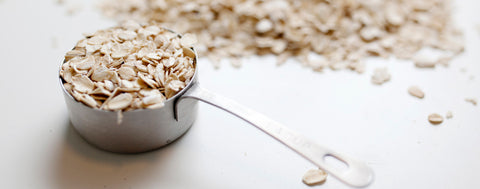When a person is constantly under stress whether it’s from food, a busy lifestyle, work demands, caffeine or their environment it increases cortisol levels, which can lead to a series of negative effects.
What is cortisol?
It’s our body’s main stress hormone. Think of cortisol as nature’s built-in alarm system. It’s what helps you to wake up in the morning and jump out of bed. It works with certain parts of the brain which control mood, fear, and motivation. Cortisol is made in the adrenal glands, which are tiny walnut-sized glands that sit on top of the kidneys.
Historically the only long-term stress humans had, revolved around life threating situations such as running form a tiger, being at war, floods, or in famine. During such times a person didn’t know where the next meal was coming from.
Today, in the Western world peoples long-term stress is faced around constant worry, financial situation, relationship concerns, struggles with friends, over-exercising, under eating, and constant rushing around to get everything done.
Day after day this continuous stress leads to an increase in cortisol levels causing our body to go into the “flight or fight” nervous system response. This elevated cortisol affects blood sugar leading to a change in metabolism regardless of how healthy we eat.
Cortisol signals every single cell in our body, so if we’re under long-term stress we are essentially affecting many different functions in our body.
Functions that cortisol play a role in are:
- Sleep/wake cycle
- Helps to regulate blood pressure
- Increases blood sugar (glucose)
- Immune system function
- Managing how your body utilizes carbs, protein and fats
- Nervous system function
- Blood pressure control
- Boosts energy so you can handle stress and restores balance afterwards
How does this affect our body?
Sleep/wake cycle
Cortisol levels are highest in the morning to get us up and out of bed, ready to tackle the day and then slowly decline throughout the day. When under constant stress cortisol levels can pick up later in the afternoons or early evening making it harder to fall asleep and stay asleep. Ever woken up around 2am - 4am with a busy, active mind? That could be because of too much stress and high cortisol levels.
Blood sugar imbalance, insulin, body fat gain, inflammation
When “stressed” our body releases adrenaline and sugar into the blood to give us a burst of quick available energy. At the same time, our body releases cortisol. Small amounts of this is healthy, but prolonged stress causes our body to release high levels in insulin to help our body maintain stable blood sugar levels. As our body produces more and more insulin, this can cause our cells to become insulin resistant, which in some cases can lead to type 2 diabetes. The increase in blood sugar can also lead to body fat gain and inflammation. The increase in body fat is from having elevated levels of blood sugar without doing any physical activity that would use up that blood sugar. This is why people who consume too much caffeine or are too stressed can gain body fat without excessively overeating. Cortisol is also our fat storing hormone, so prolonged stressed causes the body to store food as “fuel” when it’s under “perceived” stress. How this affects inflammation is that when we produce more insulin, we also produce more inflammatory cytokines in the body, and when we have higher levels of inflammation our body then begins to spike higher levels of cortisol again.
Hormones
High levels of cortisol can also cause an increase in estrogen, leading to women and even some men becoming estrogen dominant. Progesterone levels can then drop, not only from an increase in estrogen but overtime as cortisol levels increase progesterone levels decline. This can lead to an increase in PMS symptoms, painful periods, for some loss of menstruation, an increase in headaches, migraines, fluid retention, bloating.
What can you do to lower cortisol levels?
Do an activity that you love, and brings you joy. Get outside in nature, go for a walk, do some yoga or meditation. My personal favourite which is one of the most effective ways to lower cortisol levels is through breathing diaphragmatically. A simple breathing technique you can incorporate into your day anytime you feel stressed or overwhelmed is; sit in a comfortable chair, close your eyes, breathe in for 4 counts, hold for 4 counts and breathe out for 4 counts. Do this 10 times in a row to signal your nervous system that it’s safe and relaxed.
Written by Natalie Brady
References:
- 1. (2008). Central effects of stress hormones in health and disease. Understanding the protective and damaging effects of stress and stress mediators. European journal of pharmacology| 583(2-3), 174-85.
- 2. Hirotsu, C., Tufik, S., & Andersen, M. L. (2015). Interactions between sleep, stress, and metabolism: From physiological to pathological conditions. Sleep science (Sao Paulo, Brazil)| 8(3), 143-52.
- 3. (2010). Stress, food, and inflammation: psychoneuroimmunology and nutrition at the cutting edge. Psychosomatic medicine| 72(4), 365-9.
- Mujica-Parodi, L.R. Renelique, R. Taylor, M.K. (2009). Higher body fat percentage is associated with increased cortisol reactivity and impaired cognitive resilience in response to acute emotional stress. International journal of obesity, 33(1):157-65.




